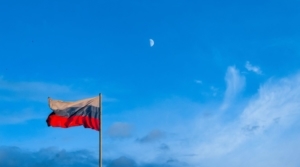
Published on: March 29, 2022 
The US Federal Communications Commission (FCC) has added Russian cybersecurity company Kaspersky Lab to its list of organizations that pose an “unacceptable risk to US national security,” according to a report from Bloomberg on Friday. This is the first time a Russian company has been added to the list, which is primarily made up of Chinese companies (like Huawei and ZTE).
Businesses in the US are banned from using federal subsidies provided through the FCC’s Universal Service Fund to purchase any products or services from the companies on the list. Along with Kaspersky, the FCC also added China Telecom and China Mobile International USA to its list on Friday.
“I am pleased that our national security agencies agreed with my assessment that China Mobile and China Telecom appeared to meet the threshold necessary to add these entities to our list,” FCC Chairwoman Jessica Rosenworcel said in a press release. “Their addition, as well as Kaspersky Labs, will help secure our networks from threats posed by Chinese and Russian state backed entities seeking to engage in espionage and otherwise harm America’s interests.”
Kaspersky responded to the FCC’s move in its own press release on Friday, saying the agency’s decision was “made on political grounds” in response to Russia’s invasion of Ukraine, and that the company “remains ready to cooperate with US government agencies to address the FCC’s and any other regulatory agency’s concerns.”
In 2017, Russian intelligence allegedly used Kaspersky’s antivirus software to steal classified documents from the National Security Agency. This claim was later denied by the Russia-based company, however.
Later that year, Former President Donald Trump signed a bill banning the use of Kaspersky products by federal agencies after accusing the company of having ties to the Russian government.
Source of Article



